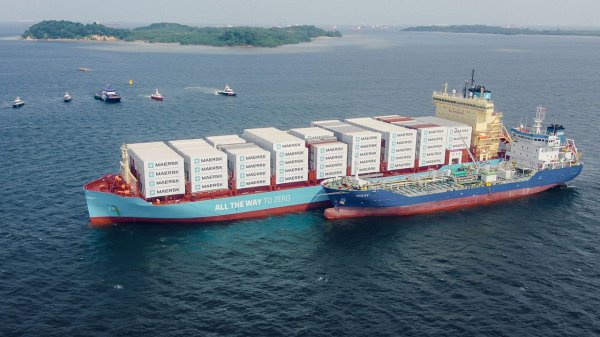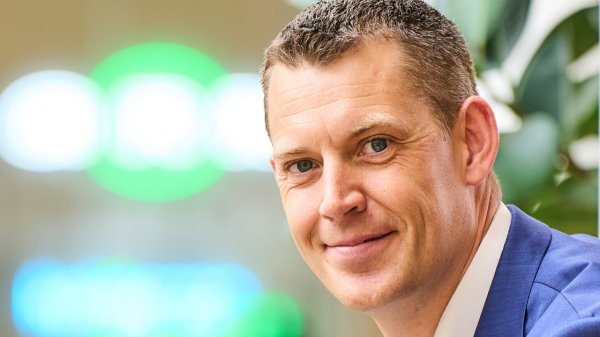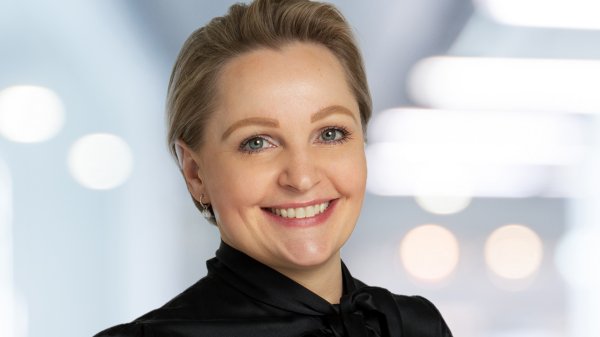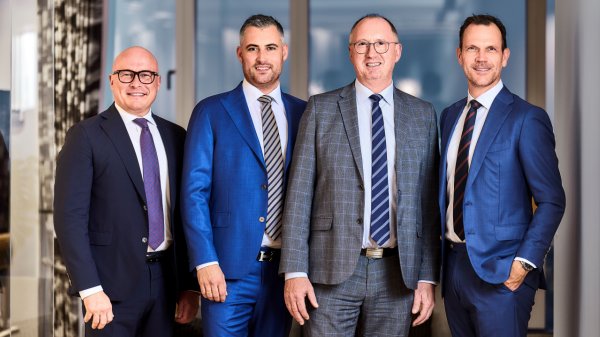NCL posts 36% Q2 profit growth as bunker costs rise $6.1 million
Q2 and H1 fuel expenses increased by 7.5% and 8.2% respectively.
Norwegian Cruise Line Holdings Ltd (NCL) reports that fuel expenses rose by $6.1 million, or 7.5 percent, to $86.7 million during the second quarter (Q2) of 2017 compared to the corresponding period last year.
In the first half (H1) of 2017, fuel costs increased by $13.3 million, or 8.2 percent, to $175.5 million.
The average fuel price per metric tonne in Q2, net of hedges, was $469 - the same figure as last year.
Forecasting
Below is NCL's forecast for fuel consumption and pricing for Q3 and FY 2017.
Fuel consumption in metric tonnes:
Q3 2017: 195,000
FY 2017: 785,000
Fuel price per metric tonne, net of hedges:
Q3 2017: $455
FY 2017: $456
Effect on Adjusted EPS of a 10% change in fuel prices, net of hedges:
Q3 2017: $0.01
FY 2017: $0.03
Hedging
As of June 30, 2016, NCL says it had hedged approximately 76, 65, 48 and 26 percent of its total projected metric tonnes of fuel purchases in 2017, 2018, 2019 and 2020, respectively.
Below is a summary of NCL's hedged and price per barrel of heavy fuel oil (HFO) and marine gas oil (MGO), which are hedged utilizing U.S. Gulf Coast 3% (USGC) and Brent, respectively.
Remainder of 2017
% of HFO consumption hedged: 85%
Average USGC price/barrel: $59.85
% of MGO consumption hedged: 57%
Average Brent price/barrel: $41.11
2018
% of HFO consumption hedged: 80%
Average USGC price/barrel: $53.02
% of MGO consumption hedged: 20%
Average Brent price/barrel: $46.50
2019
% of HFO consumption hedged: 58%
Average USGC price/barrel: $47.82
% of MGO consumption hedged: 20%
Average Brent price/barrel: $49.25
2020
% of HFO consumption hedged: 52%
Average USGC price/barrel: $39.50
% of MGO consumption hedged: 11%
Average Brent price/barrel: $51.85
Overall results
In its overall results, NCL posted a year-on-year (YoY) rise in Q2 net income of $53.2 million, or 36.6 percent, to $198.5 million.
For H1, the YoY increase was 41.9 million, or 19.2 percent, to $260.4 million.
Q2 revenue was up $157.3 million, or 13.3 percent YoY to $1,344.1 million, whilst revenue for H1 grew $230.4 million, or 10.2 percent, to $2,494.9 million.
Commenting on the results, Frank Del Rio, NCL president and chief executive officer, said: "Positive consumer sentiment in North American and key international markets has resulted in a robust booking environment that continues to be one of the strongest in recent history which, combined with our targeted strategic revenue initiatives drove second quarter revenue and yield growth well above expectations."
In the first half (H1) of 2017, fuel costs increased by $13.3 million, or 8.2 percent, to $175.5 million.
The average fuel price per metric tonne in Q2, net of hedges, was $469 - the same figure as last year.
Forecasting
Below is NCL's forecast for fuel consumption and pricing for Q3 and FY 2017.
Fuel consumption in metric tonnes:
Q3 2017: 195,000
FY 2017: 785,000
Fuel price per metric tonne, net of hedges:
Q3 2017: $455
FY 2017: $456
Effect on Adjusted EPS of a 10% change in fuel prices, net of hedges:
Q3 2017: $0.01
FY 2017: $0.03
Hedging
As of June 30, 2016, NCL says it had hedged approximately 76, 65, 48 and 26 percent of its total projected metric tonnes of fuel purchases in 2017, 2018, 2019 and 2020, respectively.
Below is a summary of NCL's hedged and price per barrel of heavy fuel oil (HFO) and marine gas oil (MGO), which are hedged utilizing U.S. Gulf Coast 3% (USGC) and Brent, respectively.
Remainder of 2017
% of HFO consumption hedged: 85%
Average USGC price/barrel: $59.85
% of MGO consumption hedged: 57%
Average Brent price/barrel: $41.11
2018
% of HFO consumption hedged: 80%
Average USGC price/barrel: $53.02
% of MGO consumption hedged: 20%
Average Brent price/barrel: $46.50
2019
% of HFO consumption hedged: 58%
Average USGC price/barrel: $47.82
% of MGO consumption hedged: 20%
Average Brent price/barrel: $49.25
2020
% of HFO consumption hedged: 52%
Average USGC price/barrel: $39.50
% of MGO consumption hedged: 11%
Average Brent price/barrel: $51.85
Overall results
In its overall results, NCL posted a year-on-year (YoY) rise in Q2 net income of $53.2 million, or 36.6 percent, to $198.5 million.
For H1, the YoY increase was 41.9 million, or 19.2 percent, to $260.4 million.
Q2 revenue was up $157.3 million, or 13.3 percent YoY to $1,344.1 million, whilst revenue for H1 grew $230.4 million, or 10.2 percent, to $2,494.9 million.
Commenting on the results, Frank Del Rio, NCL president and chief executive officer, said: "Positive consumer sentiment in North American and key international markets has resulted in a robust booking environment that continues to be one of the strongest in recent history which, combined with our targeted strategic revenue initiatives drove second quarter revenue and yield growth well above expectations."

|
How to engineer and manage green shipping fuels | Stanley George, VPS
Effective management strategies and insights for evolving fuel use. |
|
|
|
||

|
Swedish government bans scrubber wastewater discharges
Discharges from open-loop scrubbers to be prohibited in Swedish waters from July 2025. |
|
|
|
||

|
MAN Energy Solutions achieves 100% load milestone for ammonia engine
Latest tests validate fuel injection system throughout the entire load curve. |
|
|
|
||

|
Petrobras secures ISCC EU RED certification for B24 biofuel blend at Rio Grande
Blend consisting of 24% FAME is said to have been rigorously tested to meet international standards. |
|
|
|
||

|
Stolt-Nielsen to fully control Avenir LNG with acquisition
Share purchase agreement to buy all shares from Golar LNG and Aequitas. |
|
|
|
||

|
Bureau Veritas supports launch of CIMC SOE's LNG bunkering vessel
Handover of Seaspan Energy's cutting-edge 7,600-cbm vessel completed. |
|
|
|
||

|
Methanol as a marine fuel | Steve Bee, VPS
How environmental legislation has driven the development of low-sulphur fuels and methanol-ready ships. |
|
|
|
||

|
Martin Vorgod elevated to CEO of Global Risk Management
Vorgod, currently CCO at GRM, will officially step in as CEO on December 1, succeeding Peder Møller. |
|
|
|
||

|
Dorthe Bendtsen named interim CEO of KPI OceanConnect
Officer with background in operations and governance to steer firm through transition as it searches for permanent leadership. |
|
|
|
||

|
Bunker Holding revamps commercial department and management team
CCO departs; commercial activities divided into sales and operations. |
|
|
|
||
Related Links
- · NCL asks court to halt OW Bunker arbitration in bid to prevent double fuel payment [Insights]
- · NCL posts 8.8% rise in bunker costs as cruise operating expenses jump $55.3m [Insights]
- · NCL's bunker bill drops $2.58m in Q3 [Insights]
- · Norwegian Jewel retrofitted with scrubber technology [Insights]
- · NCL spends $11m less on fuel as average bunker price falls 16% [Insights]
- · United States [Directory]

